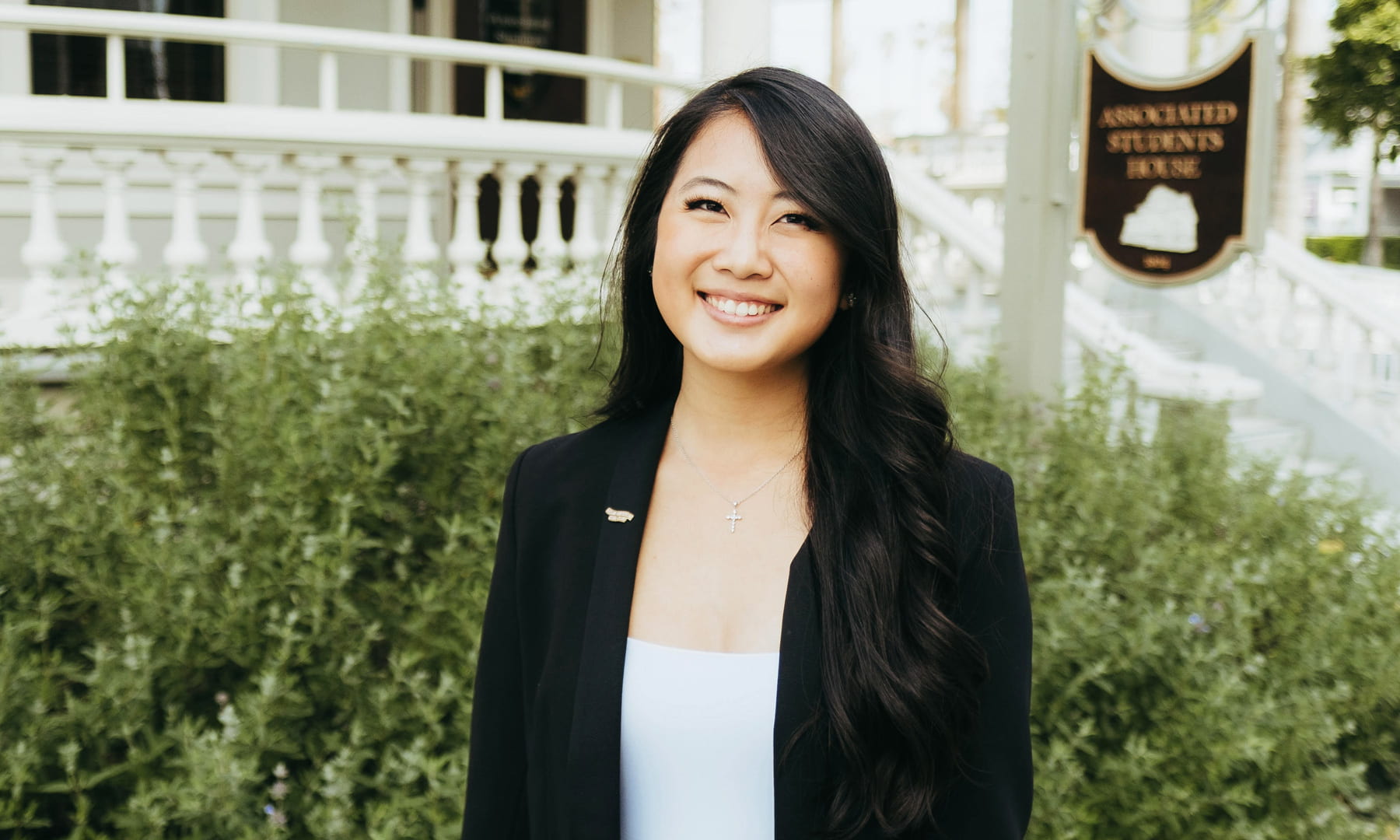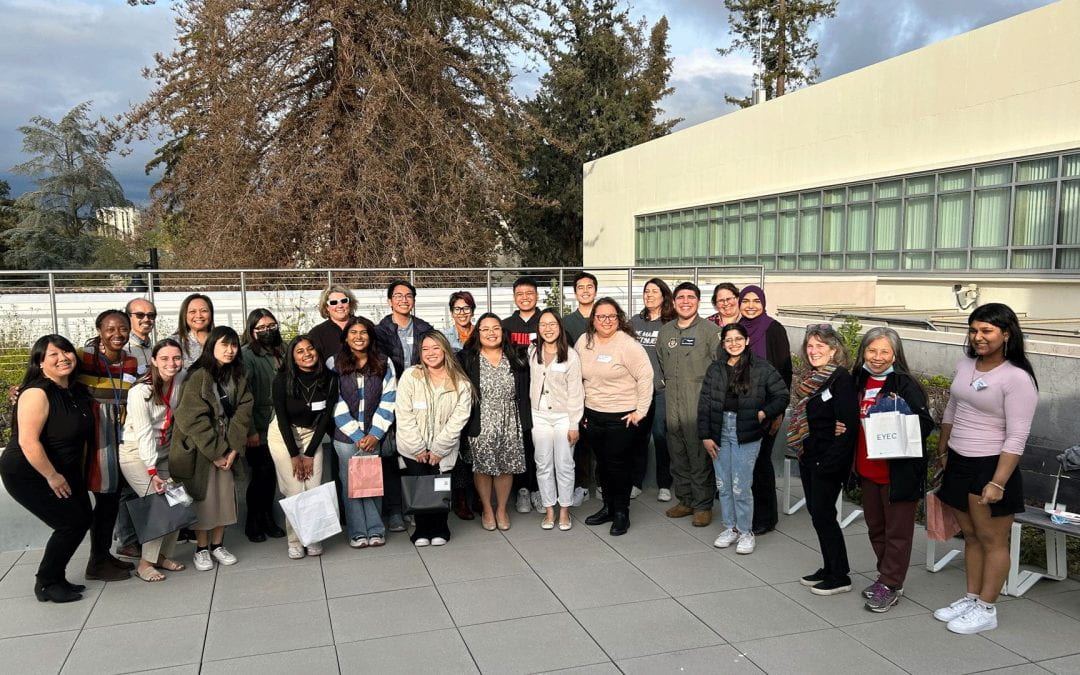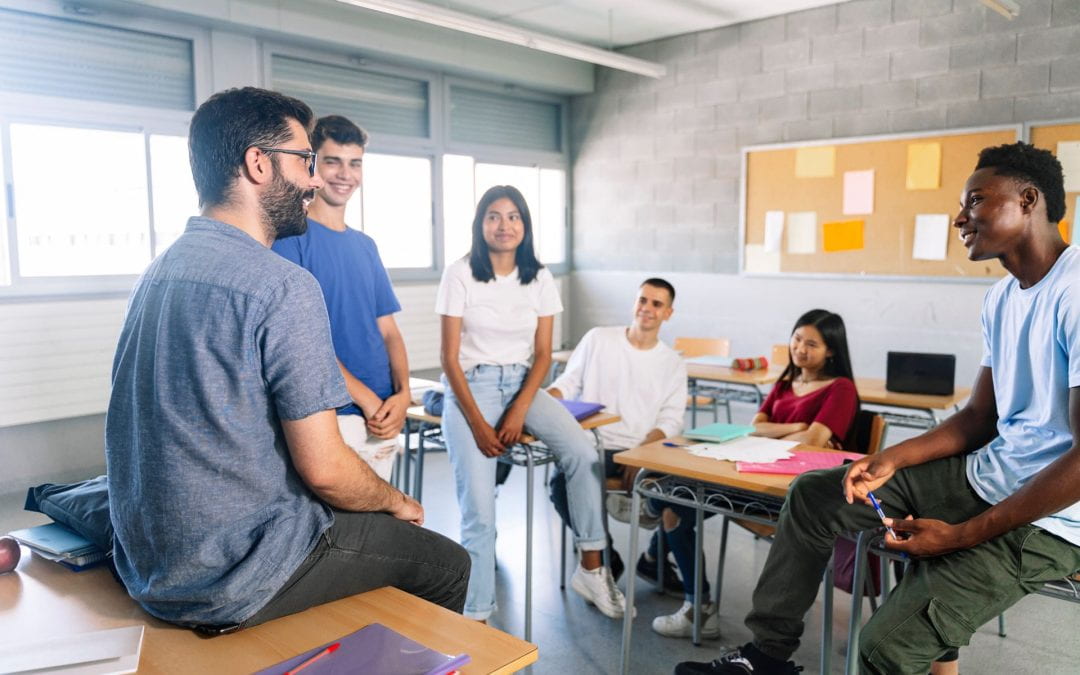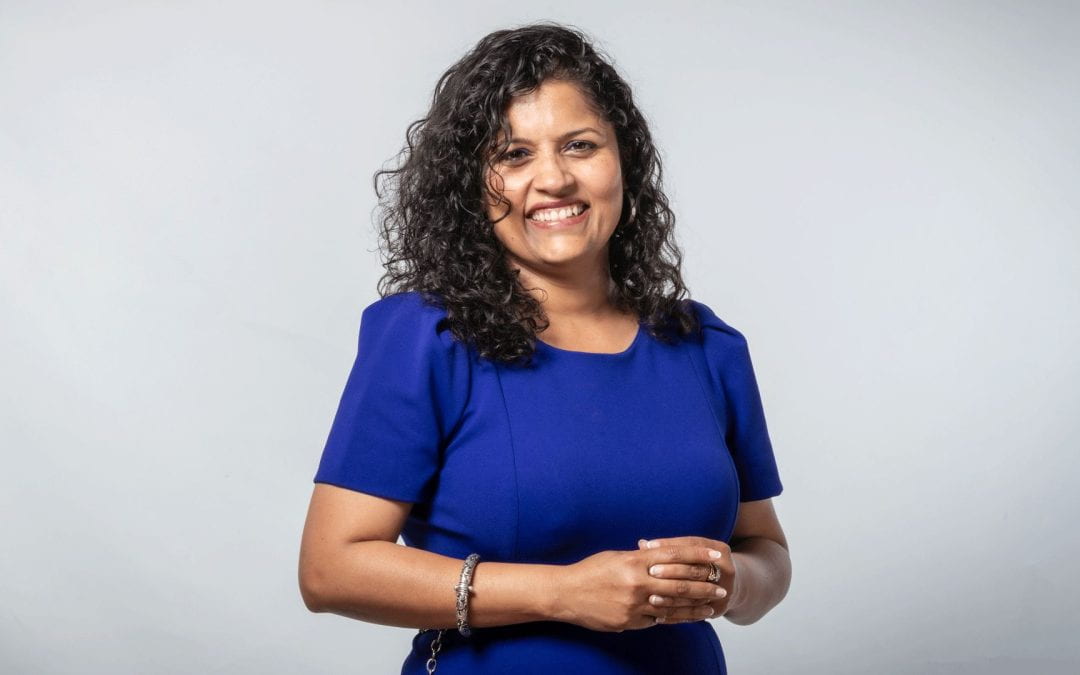Nina Chuang Serves as a Fierce Advocate for Underrepresented Students at SJSU

Nina Chuang, ’23 Nutrition and Food Science, in front of the Associated Students house.
When Nina Chuang, ‘23 Nutrition and Food Science, started her freshman year at San José State, she longed to find a physical space that would allow her to feel safe and be authentically herself.
But when she arrived on campus, she soon realized that space simply didn’t exist.
“When I first came here, I saw there was no center for me. It was hard to believe, being on a campus with such a large majority of Asian students,” said Chuang. “I always had this lingering question in my head about why there was no space for us. But I didn’t know who to ask.”
It wasn’t until 2019, when she joined Associated Students (AS) during her second year as a College of Health and Human Sciences Representative, that she began to align to a deep purpose. Since then, Chuang has driven numerous efforts to support students and effect change on campus. She was elected director of student resources affairs in her third year, vice president of AS during her 4th year; and in June 2022, Chuang officially took the reins as student body president.
One of her proudest achievements is having worked with fellow students, staff and faculty to advocate and lay down the vision for a center that would serve as an empowering space for students who identify as Asian or Pacific Islander (API).
Advocacy and Research
In fall 2022, the Center for Asian Pacific Islander Student Empowerment (CAPISE) opened its doors for the first time, with Jinni Pradhan as its program director. The safe space Chuang had been searching for finally came to life.
“The advocacy for CAPISE has actually been happening for a long time,” said Chuang. “It started during the third world liberation movement in 1968 and 1969, where student activists here at SJSU were advocating for ethnic studies and a space on campus. This happened after the Civil Rights movement.”
Currently, a little more than a third of SJSU students identify as API.
In alignment with her passion for advocacy, Chuang also played an instrumental role in the planning of SJSU’s inaugural Day of Remembrance, which received a great deal of support and media attention in February.
“That day was about calling for acknowledgement of our history,” said Chuang.
During World War II, after the attack on Pearl Harbor, President Franklin D. Roosevelt signed Executive Order 9066, ordering 120,000 people of Japanese descent into internment camps across the United States. According to data she uncovered alongside Yvonne Kwan, assistant professor and coordinator of Asian American Studies, Chuang found that of those who were sent away to camps, 125 of them were students from SJSU.
This was unearthed during a 2022 research project at SJSU King Library’s Special Collections and Archives. During the research, Chuang discovered another upsetting piece of information: SJSU’s Yoshihiro Uchida Hall was one of the locations in which Japanese people were processed before being uprooted from their homes. Chuang knew then and there that she would do everything she could to ensure other SJSU students were made aware of this dark time in the university’s history.
Heritage Matters
Chuang’s parents emigrated to the United States in the ‘80s to pursue college – her mom from Malaysia and her dad from Taiwan.
“Both wanted to pursue better opportunities not only for themselves, but also for their families,” said Chuang.
While growing up, Chuang’s family instilled in her the importance of having pride in her heritage. She remembers attending Chinese school on Saturdays and taking part in large family potlucks.
“My family always reminded me of the importance of understanding culture in order to be successful in the workplace and school,” said Chuang. “This is something I’ve always carried with me.”
Chuang is also a martial artist and part of the Spartan Wushu Club at SJSU. Wushu is a Chinese martial art that Chuang has been practicing since she was eight years old. Being able to continue this practice on campus has allowed her to feel more deeply rooted in her culture and identity.
When Chuang first started attending SJSU, her initial plan was to go into dietetics, lab research and food science. Chuang describes herself as a foodie, and feels that one of the main vessels for understanding her culture lies in food.
“I’ve learned a great deal about the science behind food, and I’ve also gotten to understand more about the public health aspects,” she mentioned.
Chuang has written research papers about diabetes and high blood pressure in Asian Americans, as well as the differences between Eastern and Western medicine, and how they have impacted the ways in which Asian Americans receive healthcare.
But since she became a part of Associated Students, Chuang has felt her heart being pulled in a different direction. She envisions herself continuing to serve and collaborate with the community, advocating for more resources and working to make an impact at the policy level.
“Nina always brings her whole self,” shared Pradhan from CAPISE. “The projects she champions resonate with her on a personal level, and she never shies away from sharing that. At the same time, she knows when it is her turn to lean in, listening and learning from others who can further open her perspective. Her drive is fueled by her huge capacity for empathy.”
Chuang has made trips to Sacramento to lobby for bills that affect student needs, as well as bills addressing hate crimes and Medi-Cal, which affect API communities. Recently, Chuang made a trip out to Washington, D.C. with SJSU President Cynthia Teniente-Matson, where she advocated for the doubling of the Pell Grant to increase financial aid and create a pathway to citizenship for undocumented students.
Combatting Outdated Systems
Over the last several years, Chuang has been so grateful for the API mentors she has encountered on her path. People like Asian American Studies professors Hien Do and Yvonne Kwan, along with MOSAIC Cross Cultural Center Director Christopher Yang, PRIDE Center Director Bonnie Sugiyama and CAPISE Director Jinni Pradhan are all people she has cherished working with along the way.
“All of these people have been such great mentors and people who’ve advocated for API students who’ve gone before me,” said Chuang. “It shows that when strong systems are not in place, our mentors empower our current generation so we can continue advocating for more.”
In April, Chuang introduced a Sense of Senate resolution – a call for SJSU to institutionalize the Day of Remembrance. By making this day a permanent fixture on campus, Chuang hopes to see future students carry on the work that she and others have started. She and other leaders on campus have also begun a conversation about putting up a mural and monument on campus to honor those whose lives were impacted by Executive Order 9066.
“Nina has taught me so much about what impassioned students can accomplish when they know our histories and are supported by our communities,” said Kwan. “From centering the history and experiences of oft-silenced SJSU Asian American alumni to advocating for student resources, Nina shines so bright that she lights up a dark world and gives the rest of us hope to forge forward.”




